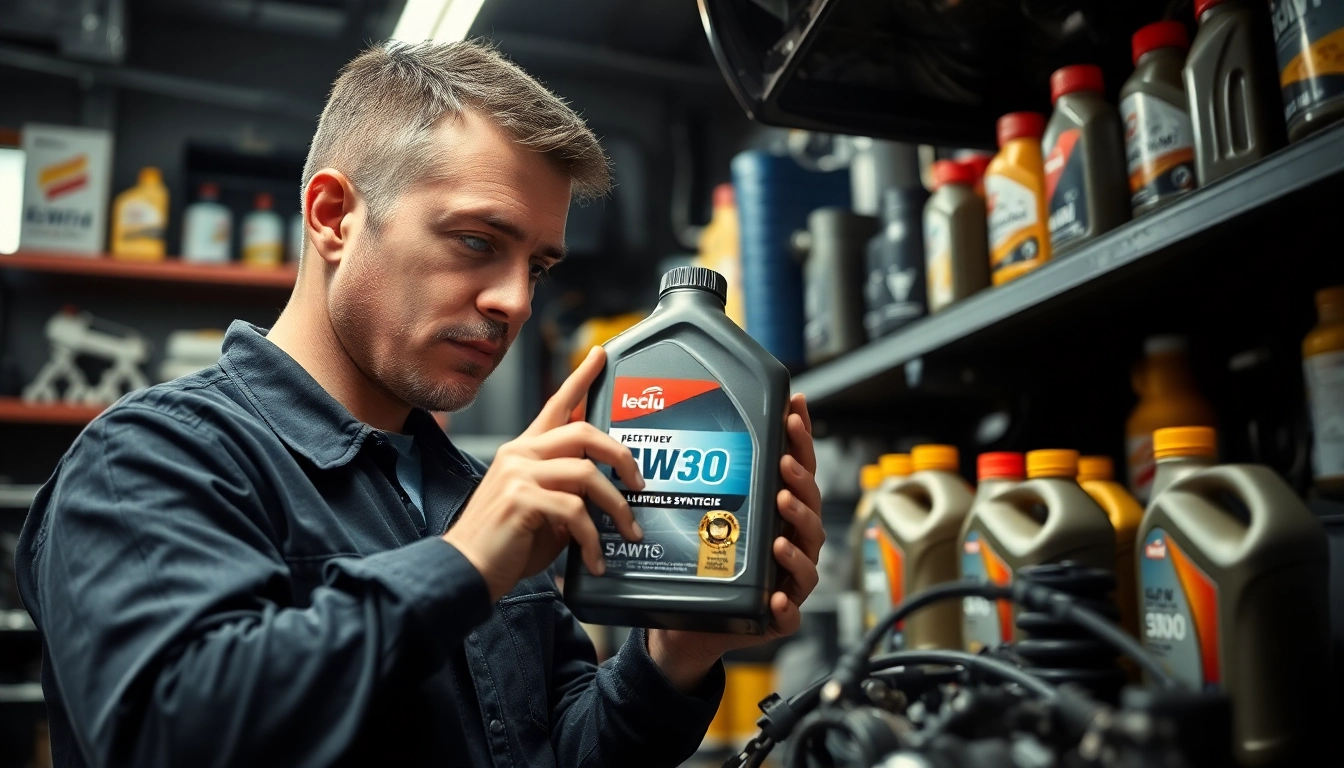
What is 5W30 Oil Synthetic?
Definition and Composition
5W30 oil synthetic is a type of motor oil characterized by its viscosity ratings of 5 in cold temperatures and 30 when the engine is at operating temperature. The “W” stands for “winter,” indicating its performance in colder weather. This oil is specially formulated through the process of refining base oil and blending it with various additives. These additives enhance the oil’s performance and protection characteristics, resulting in superior lubrication compared to conventional oils.
Key Benefits of Using 5W30 Oil Synthetic
- Superior Protection: 5W30 synthetic oils typically offer better protection against thermal breakdown and viscosity shear than traditional motor oils. This means they can maintain their protective qualities longer, especially in high-performance engines.
- Enhanced Engine Cleanliness: Synthetic oils contain detergents and dispersants that reduce engine deposits, leading to a cleaner engine and prolonged lifespan.
- Extended Oil Change Intervals: Many manufacturers recommend 5W30 synthetic oil to allow for extended oil change intervals, often up to 15,000 miles, depending on driving conditions and vehicle type.
- Improved Fuel Efficiency: The superior flow characteristics of synthetic oil reduce friction, leading to better fuel economy.
- Better Performance in Extreme Temperatures: 5W30 synthetic oil performs well across a range of temperatures, making it suitable for both hot and cold climates.
Common Applications for 5W30 Oil Synthetic
5W30 synthetic oil is commonly recommended for a variety of modern vehicles, particularly those equipped with fuel-efficient engines. It is suitable for both light-duty trucks and SUVs, as well as cars with high-performance engines. Many auto manufacturers specify this oil for vehicles designed to operate under a wide temperature range, making it a versatile choice for many drivers.
How to Choose the Right 5W30 Oil Synthetic for Your Vehicle
Brands and Their Unique Formulations
Choosing the right 5W30 synthetic oil involves understanding the unique formulations offered by different brands. Major players like Mobil 1, Castrol, Valvoline, and AMSOIL provide various formulations tailored for specific driving needs:
- Mobil 1: Known for its extended performance formula that delivers outstanding wear protection and cleaning properties, making it ideal for high-mileage vehicles.
- Valvoline: Offers synthetic oils designed with high mileage formulations that include seal conditioners to prevent leaks.
- Castrol: Features Full Synthetic Edge, engineered with Fluid Titanium Technology for maximum strength under pressure.
- AMSOIL: Provides a range of synthetic motor oils, emphasizing protection against wear and thermal breakdown.
Understanding Performance Ratings and Specifications
Performance ratings such as API (American Petroleum Institute) and ILSAC (International Lubricant Standardization and Approval Committee) provide vital information about the oil’s compatibility with various engine types. The API certifications indicate the oil’s performance under specific conditions and environmental regulations, while ILSAC specifications ensure it meets energy-conserving standards. Look for oils with the most recent ratings to ensure optimal protection and performance for your vehicle.
Expert Tips on Selecting the Right Option
When selecting a 5W30 synthetic oil, consider the following expert tips:
- Review your vehicle owner’s manual for manufacturer recommendations regarding oil type and viscosity.
- Select synthetic oil blended with additional features like high mileage formulations if your vehicle exceeds 75,000 miles.
- Consider climate conditions and driving patterns; for instance, if you experience extreme temperatures, select an oil that offers enhanced thermal stability.
- Research and compare user reviews and technical data sheets for various brands to find a product that suits your driving habits and performance expectations.
5W30 Oil Synthetic vs. Other Oil Types
Comparative Analysis with Conventional Oils
When comparing 5W30 synthetic oil to conventional oils, it is essential to understand the inherent differences in their composition and resulting performance.
Synthetic oils offer different molecular structures designed for maximum performance under varying conditions, while conventional oils consist primarily of refined crude oil. This means that 5W30 synthetic oil provides:
- Better fuel economy due to lower friction and drag.
- Enhanced thermal stability, reducing the risk of oil breakdown.
- Longer intervals between oil changes, saving time and money over the long term.
Overall, while conventional oils can still perform adequately in standard conditions, synthetic options generally provide superior protection and value for money in the long run.
Benefits Over High Mileage and Other Blends
For vehicles with over 75,000 miles, high mileage oil can be a tempting choice due to its specific blend of additives designed to rejuvenate old seals and reduce leaks. However, 5W30 oil synthetic often provides equally essential benefits, including:
- Comprehensive engine cleaning properties that high mileage oils may lack.
- Greater versatility for varying driving conditions and temperatures.
- Longer-lasting protection capabilities that can help offset the need for shorter oil change intervals.
Thus, while high mileage oils are advantageous, for many drivers, sticking with a quality 5W30 synthetic oil may offer equal or even superior overall engine performance.
Choosing Between Different Viscosity Ratings
A key decision in maintaining engine health is selecting an appropriate viscosity rating. While 5W30 is common, some situations may call for other viscosity ratings like 0W20, 10W30, or even higher. It’s essential to consider the following:
- Manufacturer Recommendations: Always refer to your owner’s manual to ensure you are using the recommended viscosity rating for your engine type.
- Temperature Conditions: 5W30 is ideal for moderate climates but may not perform as well in extremely hot conditions compared to 10W30.
- Engine Age and Condition: Older engines might benefit from heavier oils, such as 10W40, to improve oil pressure and reduce consumption.
Ultimately, it is crucial to balance your engine’s needs with the local climate and your driving style to make the best choice for your oil viscosity.
Maintenance Tips for Optimal Engine Performance
Recommended Oil Change Intervals
The intervals for changing 5W30 synthetic oil can vary significantly based on vehicle type, driving conditions, and the specific oil used. As a general rule, synthetic oils can last between:
- 7,500 miles for regular, everyday driving conditions.
- 15,000 miles if your vehicle primarily operates under minimal stress and conducive conditions.
Consulting your owner’s manual and considering any extreme driving conditions — such as towing, stop-and-go traffic, or driving in extreme temperatures — is prudent to determine the right interval.
Signs Your Engine Needs Maintenance
Regular oil changes are crucial for engine health; however, there are signs that may indicate your engine’s health is deteriorating:
- Engine Noise: Unusual knocking or ticking sounds could indicate a need for oil change or deeper engine issues.
- Oil Change Light: If this light activates, don’t ignore it. It signals the need for immediate attention.
- Excessive Oil Consumption: Increased oil use can signal internal issues such as worn seals or piston rings.
- Oil Appearance: Inspect the oil’s color; dark, gritty oil is an indicator of contamination.
Staying vigilant about these signs can help you avoid expensive repairs resulting from neglecting engine maintenance.
How to Properly Dispose of Used Oil
Used motor oil, including 5W30 synthetic oil, is hazardous waste and must be disposed of properly to prevent environmental contamination. Follow these guidelines:
- Store the used oil in a clean, leak-proof container with a tight lid.
- Locate a recycling center that accepts used motor oil; many auto parts stores offer disposal services.
- Avoid pouring used oil down drains or in trash bins, as this is illegal in many areas and harmful to the environment.
Proper disposal not only protects the environment but also allows the oil to be recycled and reused in various industries.
Frequently Asked Questions About 5W30 Oil Synthetic
Is 5W30 Synthetic Oil Right for My Engine?
5W30 synthetic oil is suitable for most modern engines, especially those that require a medium viscosity oil. It offers great performance in a variety of driving conditions, making it an excellent choice unless your vehicle manufacturer suggests an alternative viscosity rating.
How Long Does 5W30 Oil Synthetic Last?
The lifespan of 5W30 synthetic oil typically ranges between 7,500 to 15,000 miles. However, factors including driving habits and maintenance practices can influence this length. Regular checks and adhering to the manufacturer’s recommendations will guide oil change intervals.
Can I Mix Synthetic and Conventional Oils?
While mixing synthetic and conventional oils is possible, it is not recommended, as it can significantly reduce the protective qualities of the synthetic oil. If a mix must be used in an emergency, ensure to revert to a full synthetic oil change as soon as feasible to maintain optimal engine performance.







